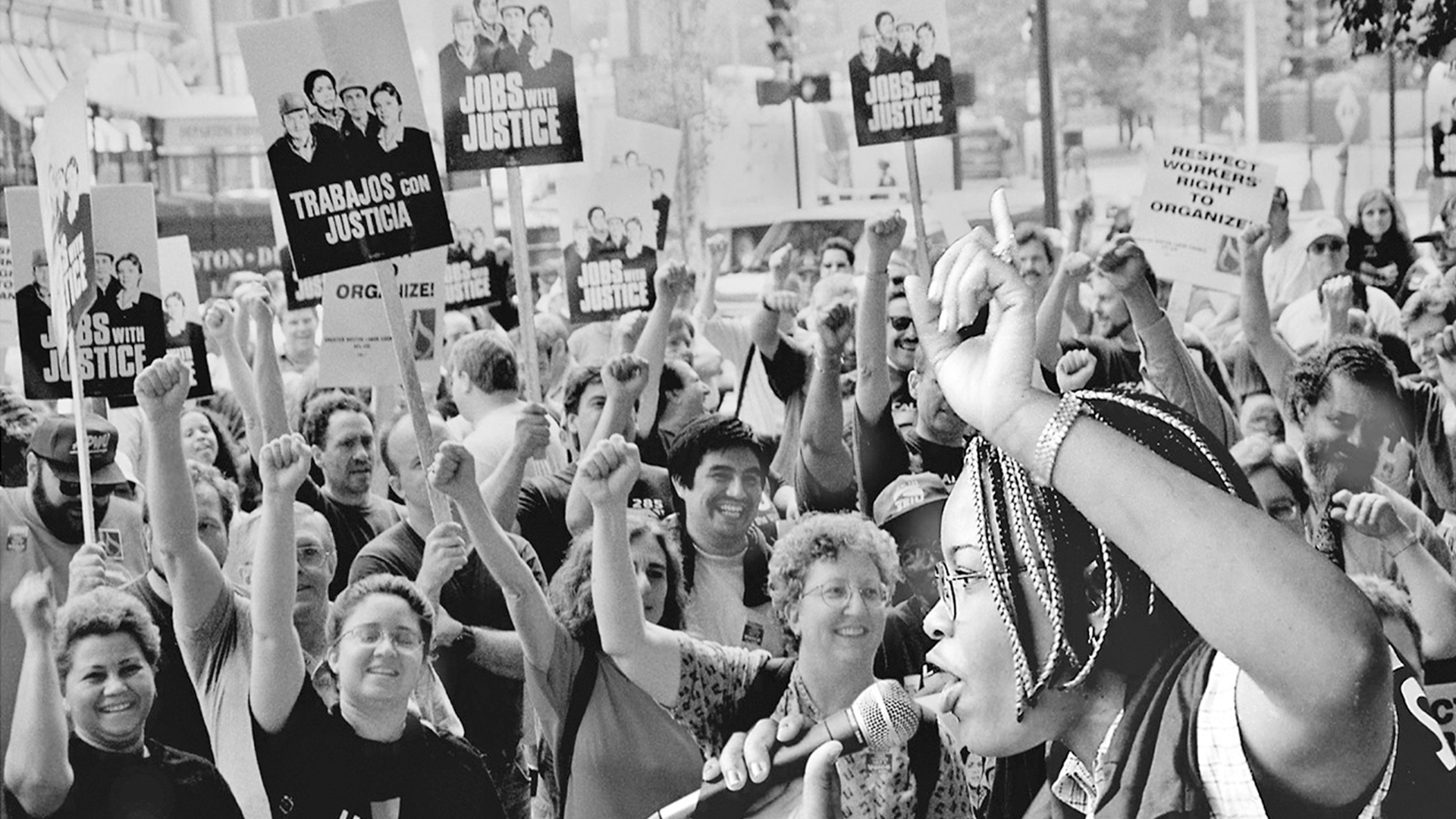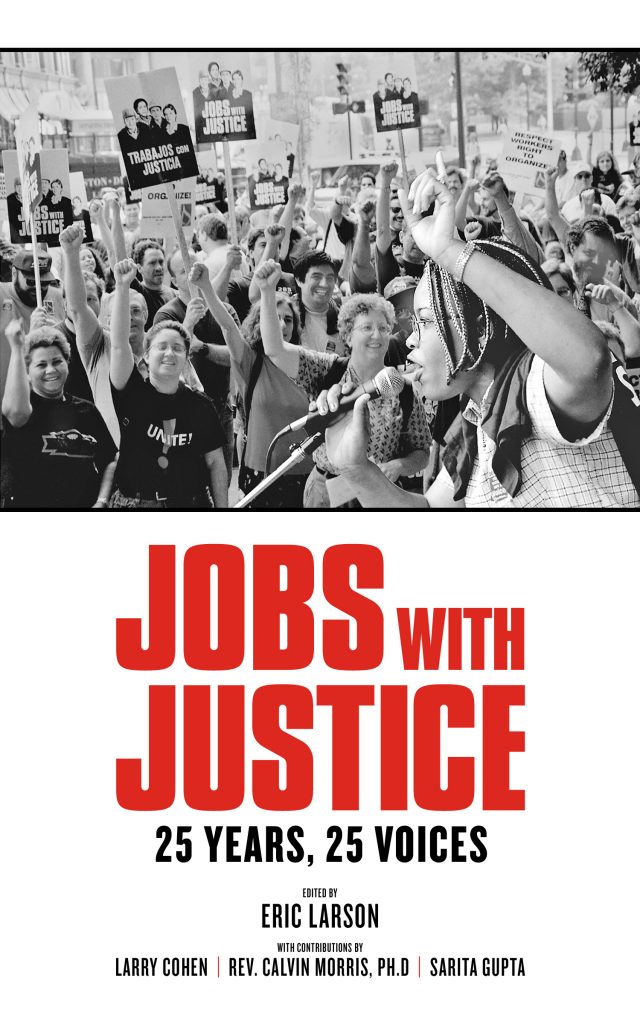By Debra W. Kidney,
Labor Studies Journal
January 22nd, 2015
In 2011, as Jobs With Justice (JwJ) leaders discussed how to celebrate the organiza- tion’s upcoming 25th anniversary, this book—an oral history—was one of the outcomes. Like all of JwJ’s projects, it is a collaboration of the communities and individuals who make up this diverse group, from national founders to the first organizers at the local level to rank-and-file members who fought and won with Jobs with Justice at their side.
In each slim chapter the person being interviewed relays his or her experiences, joys, challenges, and victories beginning when JwJ was born out of the Eastern Airlines strike in Florida in 1987 to its current national structure with 200,000 supporters made up of unions members, clergy, students, and community allies fighting for workers’ rights and an economy that benefits all. As Jobs with Justice says on its webpage, “We are the only nonprofit of our kind leading strategic campaigns and shaping the public discourse on every front to build power for working people.”
Without a doubt the shaping of public discourse happens in places with the most vibrant JwJ chapters—Detroit; Chicago; New York; San Francisco; Portland, Oregon; Cleveland; Missouri; and central Florida to name a few—and in conjunction with groups like the New Orleans Center for Racial Justice, SLAP (Student Labor Action Project), the National Immigration Law Center, and Pride at Work. JwJ’s gift and goal is to build long-term relationships in the community in order to sustain the fights, and this book celebrates those goals.
I found 25 Years, 25 Voices to be an inspiring reminder of where we’ve been and a look ahead to where we need to go. It is not necessarily a cover-to-cover read but one to dip in and out of, sampling the stories, lessons, and fun and creative actions generated through JwJ campaigns. It is also a reminder that while this now 25-year-old organization seems venerable, in the early days it was viewed with suspicion and mistrust by the established labor movement. It was only through hard work, successes, and careful relationship building that JwJ has moved into the labor lexicon as the place to go to drive economic and social justice forward. Individually and collectively this book reminds us to uphold the Jobs with Justice pledge: “I’ll be there at least five times a year for someone else’s fight, as well as my own.”







